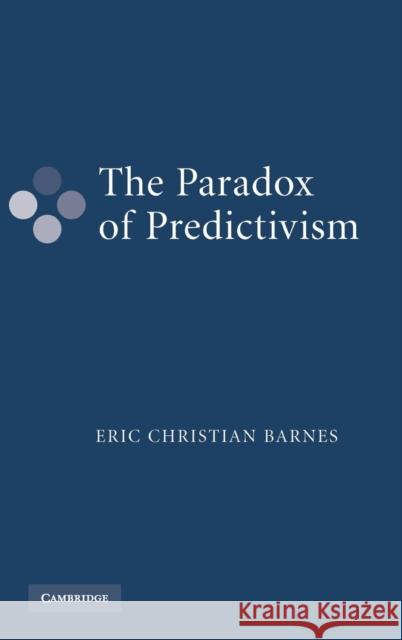The Paradox of Predictivism » książka
The Paradox of Predictivism
ISBN-13: 9780521879620 / Angielski / Twarda / 2008 / 276 str.
The Paradox of Predictivism
ISBN-13: 9780521879620 / Angielski / Twarda / 2008 / 276 str.
(netto: 252,96 VAT: 5%)
Najniższa cena z 30 dni: 262,96
ok. 16-18 dni roboczych.
Darmowa dostawa!
An enduring question in the philosophy of science is the question of whether a scientific theory deserves more credit for its successful predictions than it does for accommodating data that was already known when the theory was developed. In The Paradox of Predictivism, Eric Barnes argues that the successful prediction of evidence testifies to the general credibility of the predictor in a way that evidence does not when the evidence is used in the process of endorsing the theory. He illustrates his argument with an important episode from nineteenth-century chemistry, Mendeleev's Periodic Law and its successful predictions of the existence of various elements. The consequences of this account of predictivism for the realist/anti-realist debate are considerable, and strengthen the status of the 'no miracle' argument for scientific realism. Barnes's important and original contribution to the debate will interest a wide range of readers in philosophy of science.











